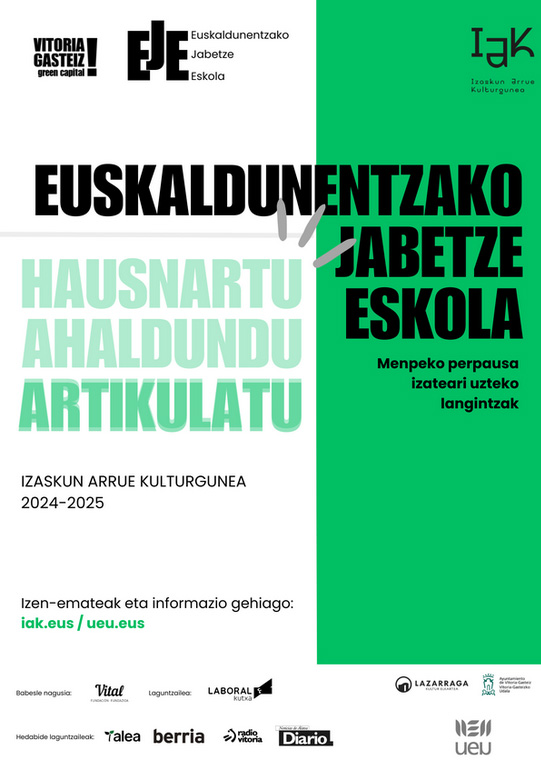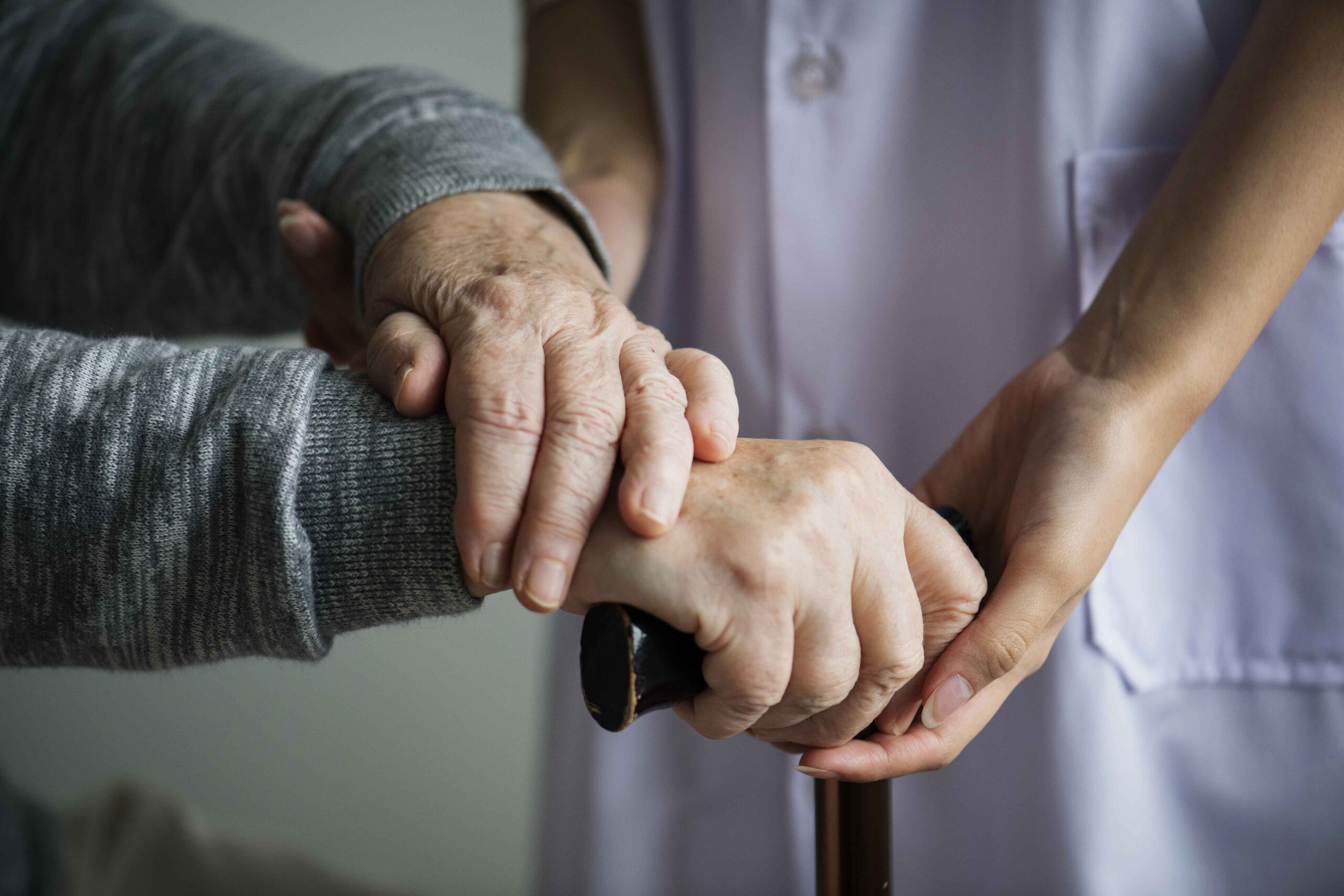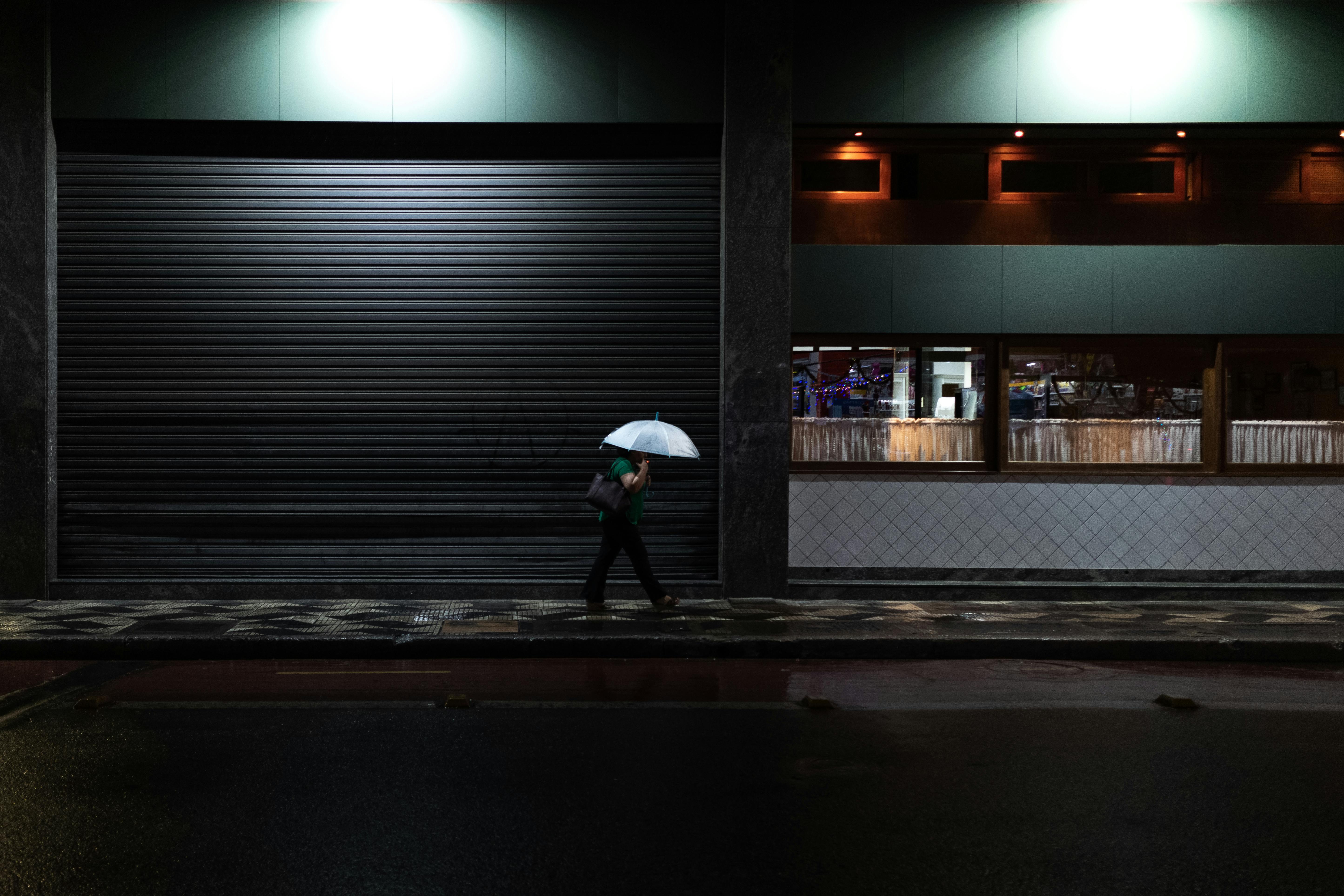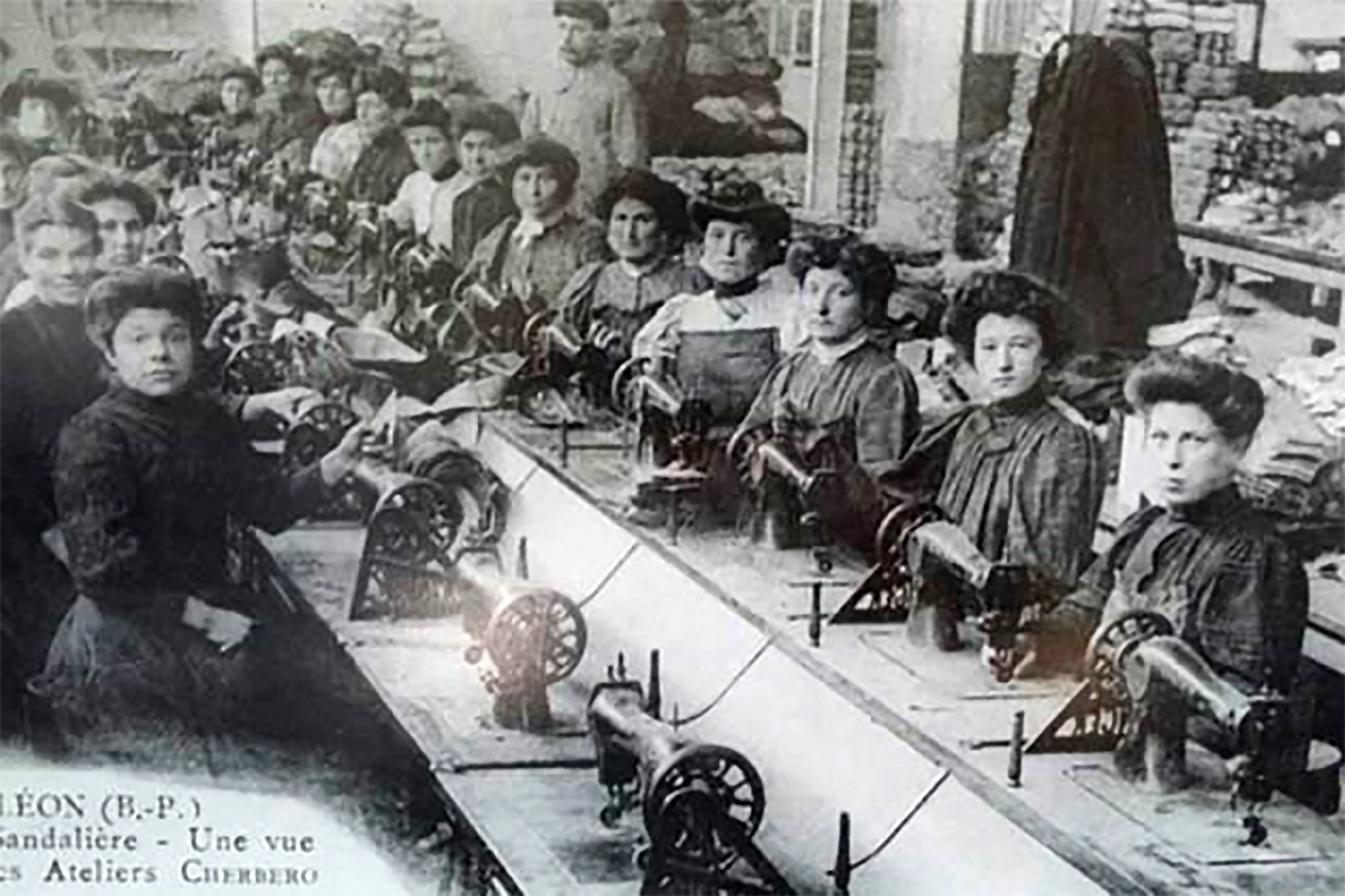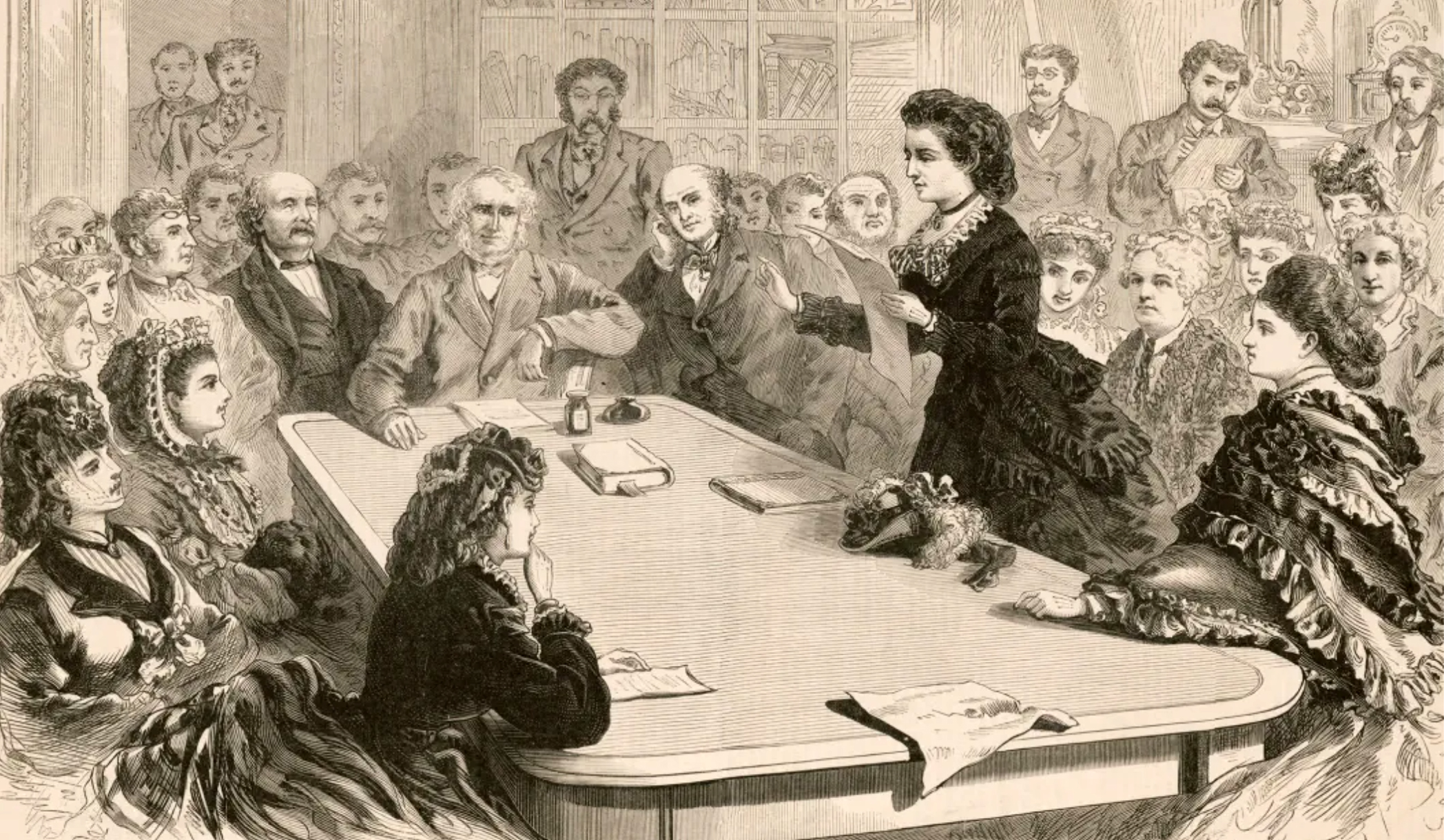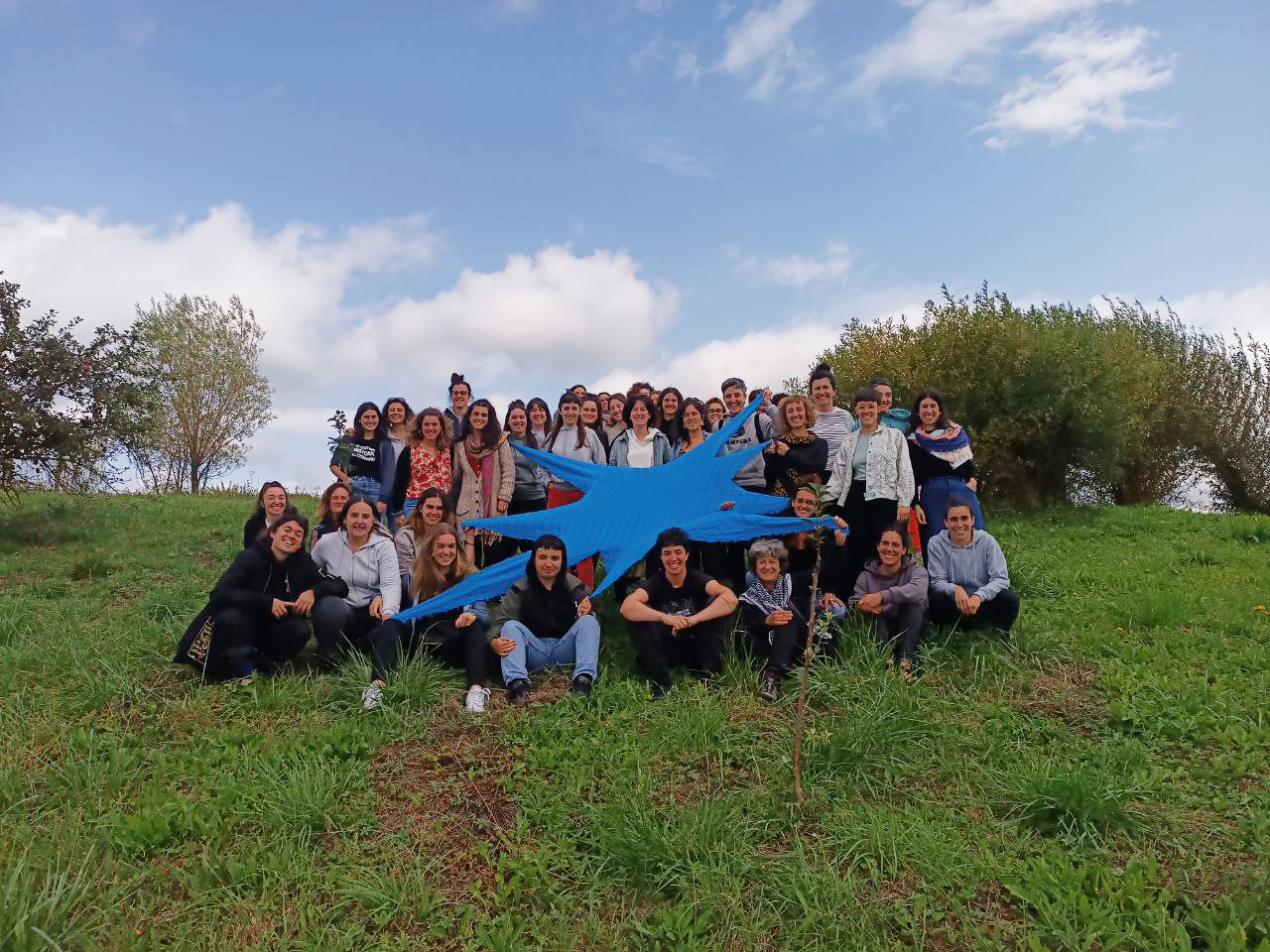"That the family has a sexist organization is essential for capitalism to be viable"
- Tithi Bhattacharya is a professor of Sudasia History, has written extensively on Marxism, gender and social reproduction theory and was one of the organizers of the U.S. feminist strike in 2017. Feminism for 99% (Txalaparta, 2019; itzultz. : Danele Sarriugarte) is a book that has just been published with Nancy Fraser and Cinzia Arruzza.

What is the theory of social reproduction (EST) and what does it bring to feminism?
It's a very big question. Marxism tells us that in capitalism workers produce goods and that with that production the capitalists get a profit. However, this gives us an incomplete view of the totality of capitalism, and in the face of this, the theorists of social reproduction ask: if goods are produced by workers, who produces them? It is here where our theory enters to explain how the processes of creation of one's own life, the processes of production and reproduction of the working class occur.
And what is the relationship between creating life and generating benefits?It is clear that the creation of life is not limited to the creation of new generations of workers, but has to do with the availability of workers
as members of the working class. Capitalism needs to create a class that responds to its needs. And the ST analyzes all the institutions involved in this process, such as the family social unit in which the worker is created, which has to be of a certain type to be able to regenerate the class. It is not by chance, therefore, that the family has a sexist organization, because that is essential for capitalism to be viable. The same is true of school, which teaches the working class to take its rightful place in society, because working people do not have their own instinct to be a worker of capital.
The processes involved in this evolution are those that analyze the ESE.
What practical consequences does that have for the feminist struggle?
There are two main practical conclusions. On the one hand, it offers us a more politicized and nuanced view of the family, which remains the main gender factory, so it is very important to place the family at the center of capitalist social relations. This is what EST does: it tells us that the family is not separated from capitalism, but at the center of capitalist social relations, within the broader network of capitalist social relations that make up hospitals, schools, jails, etc. The family is part of that capitalist whole.
Non-Marxist feminists have analyzed patriarchy and capitalism as distinct systems of oppression, but EST shows that gender relations are in themselves part of the capitalist system. Ours is the unitary theory of sexism. It very much affects the way capitalism is understood and shows many other aspects.

For example?
It shows how oppression strengthens capitalism's ability. Because the capital-labor relationship is not limited to work. Race and gender also have a decisive influence on this relationship, as they contribute to increasing the oppression of certain types of workers in the labour market. TT shows that workers reproduce socially differently, as the social reproduction of a black worker is different from that of a white worker and, consequently, black workers receive a lower wage in the labour market. But, at the same time, as black children go to more precarious schools, their capacities are also more modest for society, police violence makes their lives shorter… The EST shows that the working class reproduces differently within the same class.
With this, we do not want to emphasize inequality, since the essence of the working class is to overcome inequalities and unite us all. But that overcoming cannot be done around a supposed unity. We have to recognize that there are inequalities, that capitalism creates them, and from there and taking into account those differences, we can come together in the struggle.
Speaking of Marx, Silvia Federici in his book The Patriarchate of Wages (Katakrak, 2017) says: “Those who stopped talking about this issue are not a consequence of distraction, but a test of a border that will not be able to overcome their theoretical and political works.” What do you say to me?
Marx did not write much about family and sexuality, but both he and Engels repeatedly denounced Victorian morality and in Marx’s texts we find harsh criticism of bourgeois morality and clear support for the liberation of women.
On the other hand, Volume I of Capital offers us a vision of social reproduction. It is incomplete and necessary to deepen, but it perfectly explains to us that in order to survive the reproduction of labor is essential for capitalism. In other words, workers have to be able to go to work every day and to do so they need food, rest, housing…, renew the work capacity that each day they exhaust in their work. This renewal is social reproduction. It happens in many ways: by biological reproduction, by immigration, by slavery…
The problem is that Marx leaves social reproduction in the hands of the will of self-service and reproduction of workers, as if a separate process of capital were treated, and he is wrong in that, since capital completely regulates the reproduction of workers.
What do you think of the theory of intersectionality and how it differs from EAST? The first thing I have to say is that I do not know in what context the concept of intersectionality is used in Spain, but in the United States, in the field of activism (I do not mean academia or theoretical frameworks) is often used as a synonym for ‘anti-racist’. And so, if on
a campus someone says, "I'm an intersectional feminist," it means that she's a feminist who's against racism. As for the theory of intersectionality, I do not say that I do not agree with it, but that, unlike EST, it does not give us any hint to get out of capitalism.
That theory basically tells us that there are oppression of all kinds (gender, class, race, capacity…) and that they cross, but the problem is that it doesn’t explain why they cross. Because there seems to be no reason under that crossing, which is totally arbitrary.
But why does racism have enormous weight in some societies and not in others? I come from India, and racism based on skin color is not one of the main forms of oppression (although it is true that it has been clear skin fetishism). Religion and caste distribution are much more violent forms of oppression. The theory of intersectionality, however, does not explain why, although the modes of oppression are different, they act the same function in the different social formations. It tells us that there are different oppressions, but not why. And if you're not able to explain why, you can't offer a theory to overcome those oppressions.
How is this concrete in the case of gender and
race? Intersectionality says gender and race are differentiated oppressions, but that's it? Are there differentiated oppression categories that only refer to race and not gender? This theory does not provide us with tools to explain that view that oppression is generated or exists for one reason alone, and I believe that the EAST helps us better understand how capitalism uses oppression and why oppression needs.
In any case, it must be said that the theorists of intersectionality have offered us very rich descriptions of oppression, very useful to understand the pernicious effects of racism on society.
What is the role of “surrogate pregnancy” in capitalist social reproduction?
It is an example of the imperialist power relationship between the Global South and the Global North: Northern couples have this opportunity to achieve their personal happiness thanks to the colonial division that exists between North and South. That said, another tremendous dynamic comes into play here. All couples should be entitled to a healthy and happy child, regardless of their class position. But under capitalism, that important human longing goes through the filter of inequality linked to class and colonialism, and that's totally violent. Consequently, only a certain type of people can rent a uterus to have a child, never the other way around: A poor sterile woman from Bangladesh cannot rent Meghan Markle's womb. But the mother of Bangladesh has the same right as a rich woman from the global North to want a happy and healthy child. It is a human desire, but under capitalism one cannot consider a simple biological desire differentiated from social relations, since they are totally conditioned.
The movement against “surrogate pregnancy” denounces that the will becomes a right, but your desire to have a child is a right. Why? For
me, the right to have a child and not to be a child are the same, because it must be borne in mind that the poor have poor children following Malthusian ideas, cruel policies of sterilization of women of color have been applied throughout history. And black and dark-skinned women have fought for the right to be mothers, facing the violence of the capitalist state that denied them that right. Given this history, feminists should clearly understand that rights are based on the social context. Without forgetting, of course, that the demand for women's right to have children must be accompanied by the demand to be and not be when they want, and that this must not be decided by law or the State. That is where I put the argument that the right to have children is as important as the right not to have them.
As a measure of "boosting motherhood", Pp proposed a few months ago the suspension of the expulsion of women without documentation in case the children were destined for adoption. What do you think of this? This
measure is totally racist at many levels. On the one hand, because it underlies the blackmail that the poor have to sell to our children to have the right to make a living. Secondly, because most countries in the global North use the labor force of immigrant women to deal with social reproduction: in hospitals, in cleaning, in cleaning, in cleaning, in cleaning… Their social reproduction work is used to build society, but then they want to steal their children so that society can use that labor. Thirdly, it is impressive to see how the lives of immigrants are seen as a commercial medium, in which society has the right to attract its children while the capitalists throw crumbs at the table in the form of wages. This proposal is absolutely fearsome and violent and must be combated with all its strength.
We are in the midst of an offensive against women’s reproductive rights, especially against the right to abortion. How is capitalism functional?
This question is very important, since at this time of capitalist crisis the two factions of the capitalist class offer us an alternative. On the one hand, we have neoliberal feminism along the lines of Hillary Clinton. They talk about women's empowerment, but they only want it for the women in the ruling class, not for the majority. They say that they are in favour of the right to abortion, but they don't realize that it has to do with the kind of work that you have the right to have children, and even though they struggle to legalize abortion, they don't fight for better salaries or better living conditions.
Another answer from the class authority is obviously misogynistic and racist, and is embodied by Trump, Narendra Modi of India and others. They tell you that we have to protect the traditional family and encourage women to have traditional values. Along with this, white supremacists are concerned about the reduction in the number of white people in the global North, and white women want more children in the world. Capitalism, therefore, mainly offers these two options, and in the face of this, the new generation of Marxist feminists must turn their backs on both and promote a feminism for the 99% that is based on the class struggle, a feminism that joins the daily struggles of working women and the oppressed peoples of the world, which understands that the fight for abortion cannot be separated from the fight for health or for a better salary.
Maule, 1892. Eight women from the Salazar Valley headed home from the capital of Zuberoa, but on the way, in Larrain, they were shocked by the snow and all were killed by the cold. Of the eight, seven names have come: Felicia Juanko, Felipce Landa, Dolores Arbe, Justa Larrea,... [+]
A few weeks ago we heard Trump in the televised debate on the existence in his country of democratic states that authorize abortion after the birth of his son.
Judging by the character, it seems an absurd and improvised idea, but that same falsehood was heard in 2019 by Adolfo... [+]
Born 2 April 1970. The newspaper New York Herald published a letter with activist and broker Victoria Woodhull (1838-1927), in which he realized his candidacy for the U.S. presidential elections of 1872. It is the youngest candidate in history, who would be 34 years old on the... [+]











